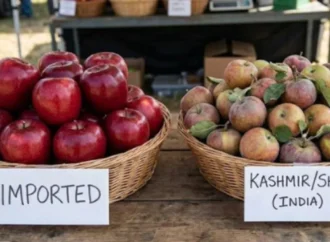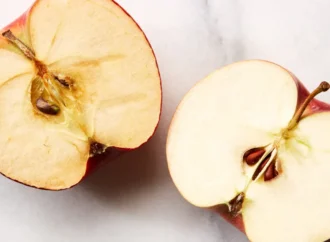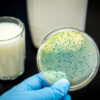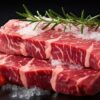 Food Manifest
Food Manifest
The house of resource for food safety.
General
- Home
- General

Imported or Local Apples? The Freshness Factor You’re Ignoring0
- A to Z, Food Laws, General, Health & Wellness, News
- February 16, 2026
Key Development Walk into any supermarket in India and you will see apples labelled “imported” or “premium,” often sold at higher prices. Many consumers assume that a higher price means better nutrition. But that assumption does not always hold. Dr Sudhir Kumar, a neurologist based in Hyderabad, advises consumers to look beyond glossy packaging and
READ MORE
Why Apples Turn Brown After Cutting — And What It Means for Food Safety0
- A to Z, Food Hygiene, Food Safety, General, Health & Wellness
- February 6, 2026
Have you ever cut an apple, left it on the counter for a few minutes, and noticed it slowly turning brown? Many people immediately assume that this colour change means the apple has gone bad or is unsafe to eat. In reality, the browning of apples is a natural chemical reaction called enzymatic browning—it’s not
READ MORE
Thiruvananthapuram to Host Eat Right Kerala Food Safety Event on Feb 60
- A to Z, Food Hygiene, Food Safety, General, News
- February 5, 2026
Key Development To strengthen food safety awareness and promote healthier eating habits, the food safety department will organise a state-level programme titled ‘Eat Right Kerala: Safe Food for Better Life’ in Thiruvananthapuram on February 6. Health Minister to Launch Key Initiatives Health Minister Veena George will inaugurate the event at the Central Stadium. As part
READ MORE

FDA Shuts VN Desai Hospital Canteen Over Licence, Hygiene Violations0
- A to Z, Food Hygiene, Food Safety, General, News
- January 10, 2026
Key Update The Food and Drug Administration (FDA) in Mumbai ordered the immediate closure of VN Desai Hospital’s in-house canteen after inspectors found it operating with an expired licence and under unhygienic conditions. Managed by a private caterer for years, the canteen continued serving staff and patients’ relatives despite its Food Safety and Standards Authority
READ MORE
Indore Water Crisis Worsens After Infant Death on New Year’s Day0
- A to Z, Food Hygiene, General, News
- January 1, 2026
Key Development India’s cleanest city, Indore, continues to grapple with a severe drinking water contamination crisis, with the death toll rising to 10 following the death of a six-month-old infant in Bhagirathpura on New Year’s Day. The outbreak has intensified concerns over drinking water safety—an essential pillar of food safety—as over 1,400 people have fallen
READ MORE
No Hot Food This Winter: Ludhiana Station Vendors Hit by Safety Ban0
- A to Z, Food Hygiene, Food Safety, General, Health & Wellness, News
- December 30, 2025
Key Update The multi-crore redevelopment of Ludhiana railway station has brought food safety to the forefront, especially during winter. To prevent fire hazards, gas leaks, and electrical accidents in active construction zones, railway authorities have prohibited all heating and cooking equipment on platforms. This includes electric stoves, gas cookers, and traditional coal-fired angeethis (coal-burning stoves
READ MORE
Latest Posts
-

-

Seafood on Your Plate, Risk in Your Gut?
- A to Z, Food Hygiene, Food Safety, General, Health & Wellness
- February 20, 2026
-

-

Milk Safety Drive: 12,780 Samples Fail FSSAI Tests in FY 24-25
- A to Z, Food Safety, General, News
- February 18, 2026
-









